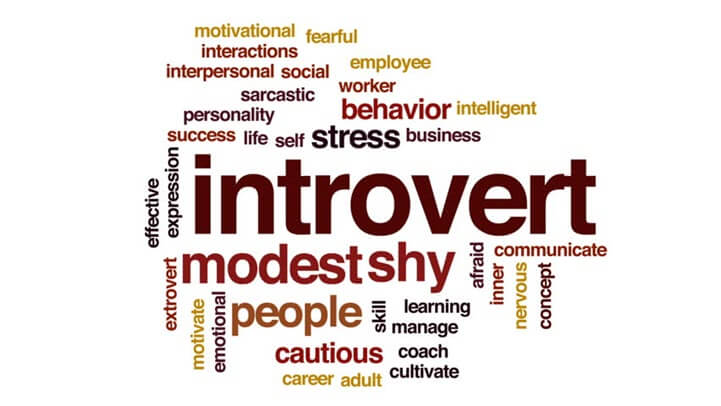Introverted
- An introvert is often thought of as a quiet, reserved, and thoughtful individual.
- They don’t seek special attention or social engagements, as these events can leave introverts exhausted and drained.

Solitude
The idea of being home alone is thrilling, not taxing.
These periods of solitude are crucial to an introvert’s health and happiness.
Whether you’re simply resting or engaging in an activity, solitude is a welcome relief.
Introverts enjoy reading, gardening, crafting, writing, gaming, watching movies, or performing any other action alone.
While extraverts would not dare miss a Friday night out with friends, introverts know when they’ve maxed out and need to refuel their batteries.
That’s not to say all introverts will flake out of parties — they can and enjoy them as much as any extravert — but at the end of a long night, introverts need to escape to recharge and reset.
Groups
You may be an introvert if a group project feels overwhelming or loathsome.
However, Introverts often work best when they work alone.
The isolation allows introverts to focus profoundly and produce high-quality work.
This isn’t to say introverts don’t work well with others; they prefer to retreat and focus on the task rather than navigate the social aspect of working in a group setting.
Don’t mistake an introvert’s small circle of friends as a sign that they can’t make friends or don’t like to socialize.
They enjoy talking with people and getting to know others.
They also prefer the solitude of a small circle of friends.
According to one study, high-quality relationships are a key to happiness for introverts.
Thinkers
You may find yourself daydreaming or working things out in your mind long before you put a plan of action in place or lift a finger to change anything.
Introverts have a very active inner thought process.
That also leads them toward self-reflection and research.
Introverts are dedicated to pursuing their interests and feeling prepared and well-read.
Introverts often “escape” from a situation by zoning out or letting their mind wander away from the task at hand.
For you, this may be a way to leave a situation that feels too chaotic or uncomfortable; it’s a survival mechanism. But to others, it may seem like you’re unfocused.
You’re incredibly comfortable writing out your thoughts than speaking when unprepared.
You prefer to think through your response because your communication style is focused and considerate.
You can carry on conversations, but if decisions are necessary, you may want more time to consider and weigh your options so you feel confident in the choice.
Advice
Most people are not purely introverted or purely extraverted. They fall somewhere in the middle with characteristics of both.
Some characteristics may be more robust so that people may self-identify as introverts or extraverts.
Your genes may play a significant role in determining where you will fall on the personality continuum.
People can be what you might call introverts with a capital I (aka "very introverted"), or they might be outgoing in some situations with some introverted tendencies.
Introversion exists on a continuum with extraversion, and most people tend to lie between the two.
Suppose you identify with some characteristics of introversion and some characteristics of extraversion.
In that case, there is a good chance you are one of the 70 percent of people who fall somewhere in the middle.
Ambiverts enjoy spending time with others alone, depending on the situation and their needs.
Remember that one type isn't "better" than the other.
Each tendency can have benefits and drawbacks depending on the situation.